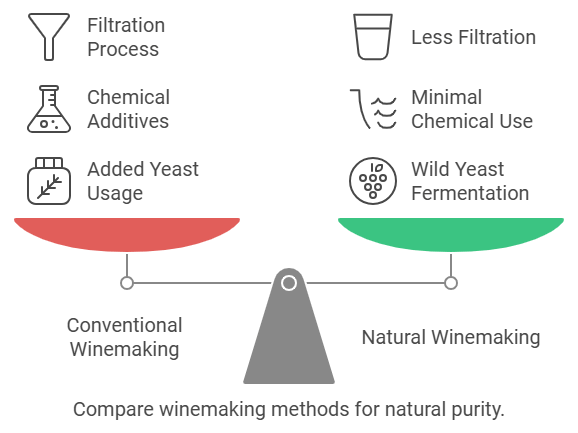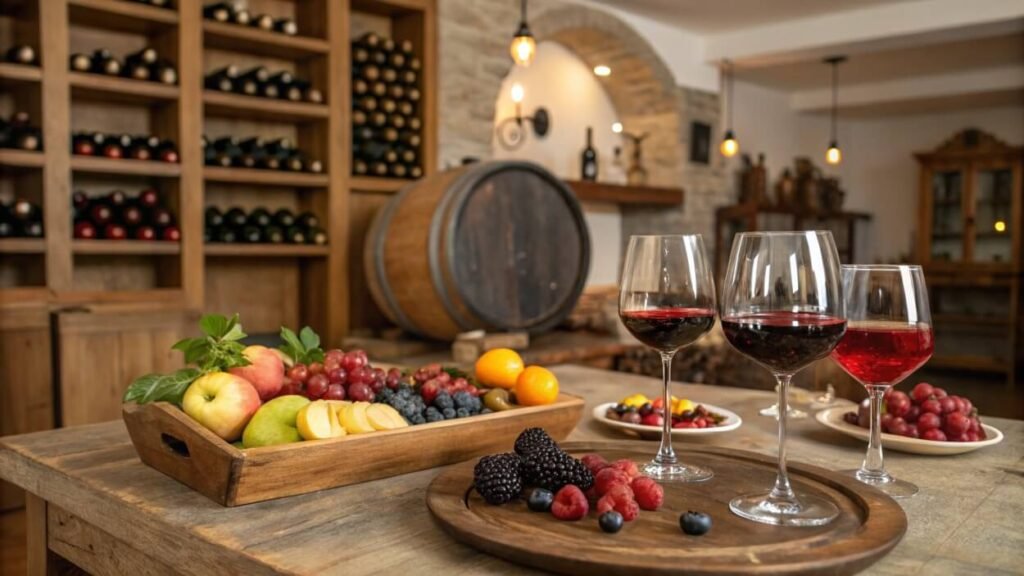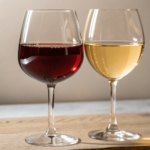Ever picked up a glass of natural wine and thought, “Whoa, this is different!”? You’re not alone. I remember my first encounter with a cloudy, orange-hued wine that smelled like fresh apple cider and tasted like nothing I’d experienced before. That’s the beauty of natural wines – they’re wildly unique and incredibly fascinating. Let’s dive into the wonderful world of natural wine flavor profiles, and I promise you’ll never look at wine the same way again.
What Makes Natural Wine Taste So… Natural?

Natural wines are like the jazz musicians of the wine world – they follow their own rhythm. Unlike conventional wines, these free-spirited bottles are made with minimal intervention, meaning no added sulfites, no commercial yeasts, and absolutely no artificial anything. This hands-off approach leads to some seriously interesting flavor profiles that might surprise your taste buds.
The Core Flavor Families
Let’s break down the main flavor profiles you’ll encounter in your natural wine journey:
1. The Fresh and Funky
- What to Expect: Think kombucha meets champagne
- Typical Notes:
- Fresh apple cider
- Sourdough bread
- Fermented tea
- Wild herbs
2. The Earthy Enthusiasts
- Common in: Red natural wines
- Characteristic Notes:
- Forest floor
- Mushrooms
- Wet stones
- Raw cacao
3. The Fruit Forward Rebels
- Usually Found in: Younger natural wines
- Dominant Flavors:
- Bright berries
- Tropical fruits
- Citrus zest
- Fresh herbs
Understanding the “Funk Factor”
Let’s talk about that famous natural wine “funk” – it’s not just a buzzword, folks. Here’s a handy guide to what you might encounter:
| Funk Level | What to Expect | Perfect For |
| Mild | Slight fizz, apple cider notes | Natural wine newcomers |
| Medium | Sourdough, kombucha vibes | Adventure-seeking sippers |
| Full-On | Complex fermented notes, barnyard aromatics | Experienced natural wine lovers |
Regional Flavor Variations
Natural wines reflect their terroir more intensely than conventional wines. Here’s what you might taste from different regions:
French Natural Wines
The OG natural wine producers tend to show:
- Mineral-driven profiles
- Elegant earthiness
- Subtle fruit characters
Italian Natural Wines
Expect:
- Bold skin-contact flavors
- Aromatic complexity
- Mediterranean herb notes
American Natural Wines
Look for:
- Experimental flavor profiles
- Fruit-forward characteristics
- Bold expressions
How to Approach Natural Wine Tasting
I always tell my friends to forget everything they know about conventional wine tasting when approaching natural wines. Here’s my tried-and-true method:
- Look: Yes, it might be cloudy – that’s normal and beautiful!
- Smell: Take your time here; the aromas evolve in the glass
- Taste: Start with small sips and let the wine tell its story
- Think: What does it remind you of? There are no wrong answers!
Food Pairing Magic
Natural wines can be fantastic food companions. Here’s what works:
| Wine Style | Perfect Pairings |
| Orange Wines | Spicy Asian cuisine, hard cheeses |
| Natural Reds | Charcuterie, grilled vegetables |
| Natural Whites | Fresh seafood, light pasta dishes |
| Pét-Nat | Appetizers, brunch dishes |
The Temperature Sweet Spot
Pro tip: Natural wines often show their best at slightly warmer temperatures than conventional wines:
- Whites: 50-55°F (10-13°C)
- Reds: 60-65°F (15-18°C)
Storing Your Natural Wines
Since these wines don’t contain preservatives, proper storage is crucial:
- Keep them in a cool, dark place
- Store bottles on their side
- Avoid temperature fluctuations
- Consume within 1-2 years of purchase
Embracing the Adventure
Natural wines are more than just a trend – they’re a return to wine’s roots, offering a genuine taste of place and time. Whether you’re a curious newcomer or a seasoned wine enthusiast, there’s always something new to discover in the world of natural wines.
Ready to start your natural wine journey? Remember: keep an open mind, trust your palate, and don’t be afraid to ask questions at your local natural wine shop. The best part about natural wines is that there’s no pretense – it’s all about enjoying what’s in your glass.
Have you tried natural wines before? What were your impressions? Share your experiences in the comments below!


